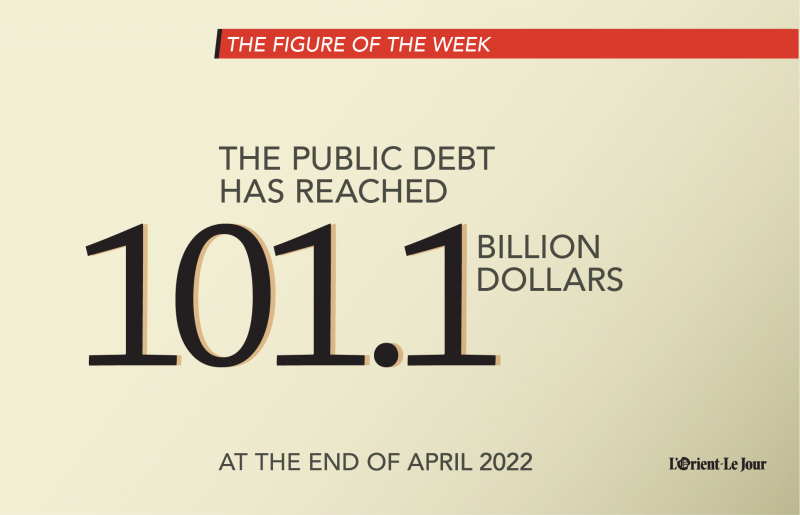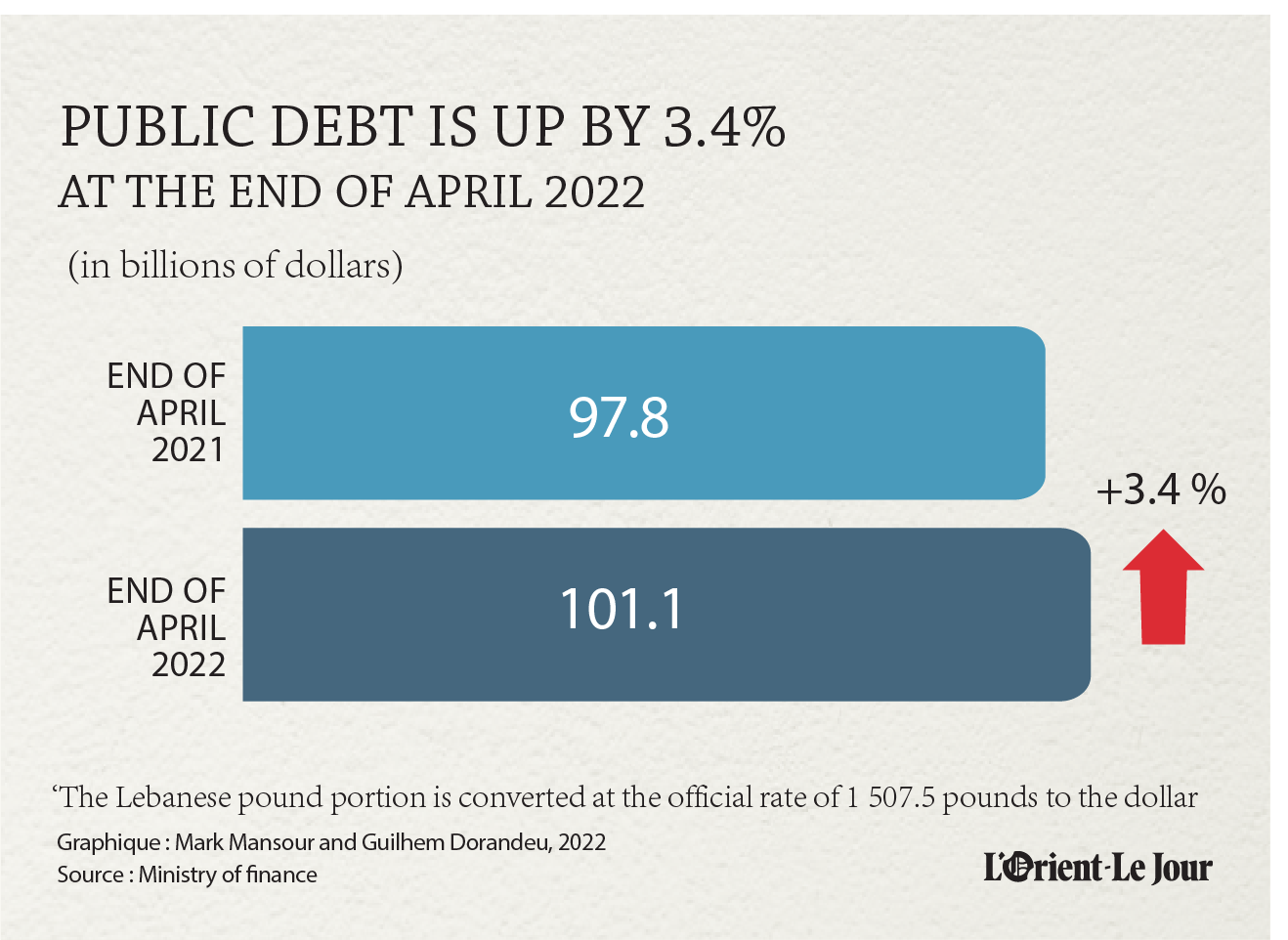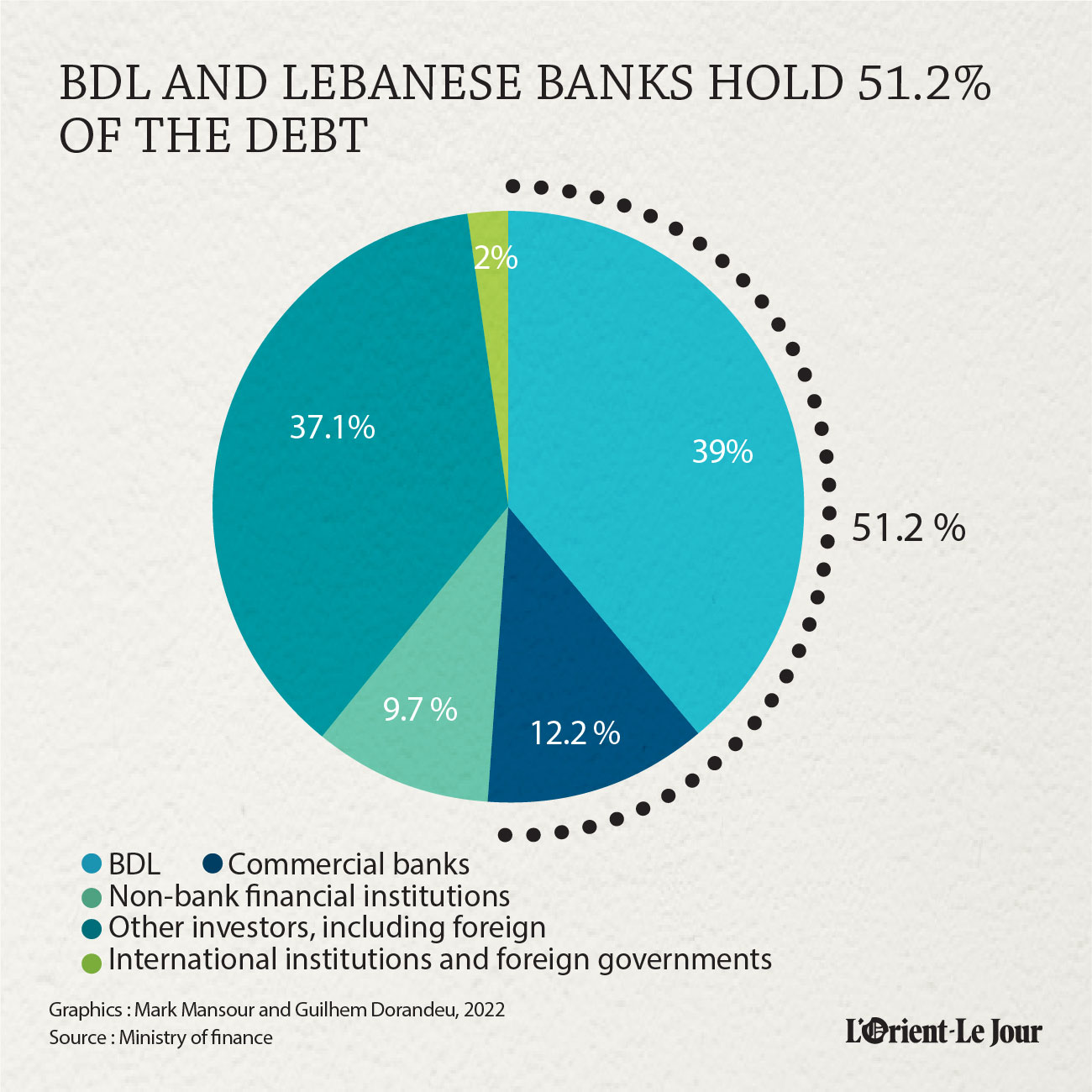
Lebanon’s public debt reached a record high at the end of April 2022: $101.1 billion, according to the figures recently published by the Finance Ministry and relayed in a Byblos Bank report.
However, this staggering figure needs some additional context; it is based on the official exchange rate of LL1,507.5 to the dollar.
It should be noted that the official exchange rate is limited to very few transactions, such as wheat import subsidies, which continue to be financed by the Banque du Liban.
On the parallel market, the lira is trading at around LL38,000 to the dollar— a depreciation of 96 percent over the last three years, according to L’Orient-Le Jour’s calculations.
Based on the Sayrafa rate — BDL’s exchange platform, currently trading around LL29,8000 to the dollar— the debt amounts to $43.7 billion.

This new peak is a 0.47 percent increase from $100.4 billion in debt reached at the end of 2021 and a 3.4 percent increase from $97.8 billion reached at the end of April 2021.
In detail, at the end of April 2021, 60.8 percent of the public debt was denominated in lira and 39.2 percent in foreign currency, which corresponds to LL92,710 billion and $39.6 billion, respectively, including $10.03 billion in accumulated payment arrears.
At the end of April 2022, BDL’s share of the public debt amounted to 39 percent, followed by commercial banks with 12.2 percent, and international institutions and foreign governments with 12 percent. Non-bank financial institutions held 9.7 percent of public debt, while local and foreign investors shared the remaining 37 percent.

BDL’s and commercial banks’ combined share of public debt totals just over 50 percent— the result of heavy investment in treasury bills and eurobonds with high yields, which left them extremely vulnerable when the government defaulted on its eurobond debt in March 2020. Almost two and a half years later, no debt restructuring has taken place.
As soon as rumors of a possible default began to circulate, some of the international creditors formed the Ad Hoc Lebanon Bondholder Group to negotiate with Lebanon. The group did nothing after negotiations between Lebanon and the International Monetary Fund failed in July 2020. The group reappeared in September 2021 to remind Lebanon of its obligations, but no real success was achieved.
This article was originally published in French in L'Orient-Le Jour. Translation by Sahar Ghoussoub.